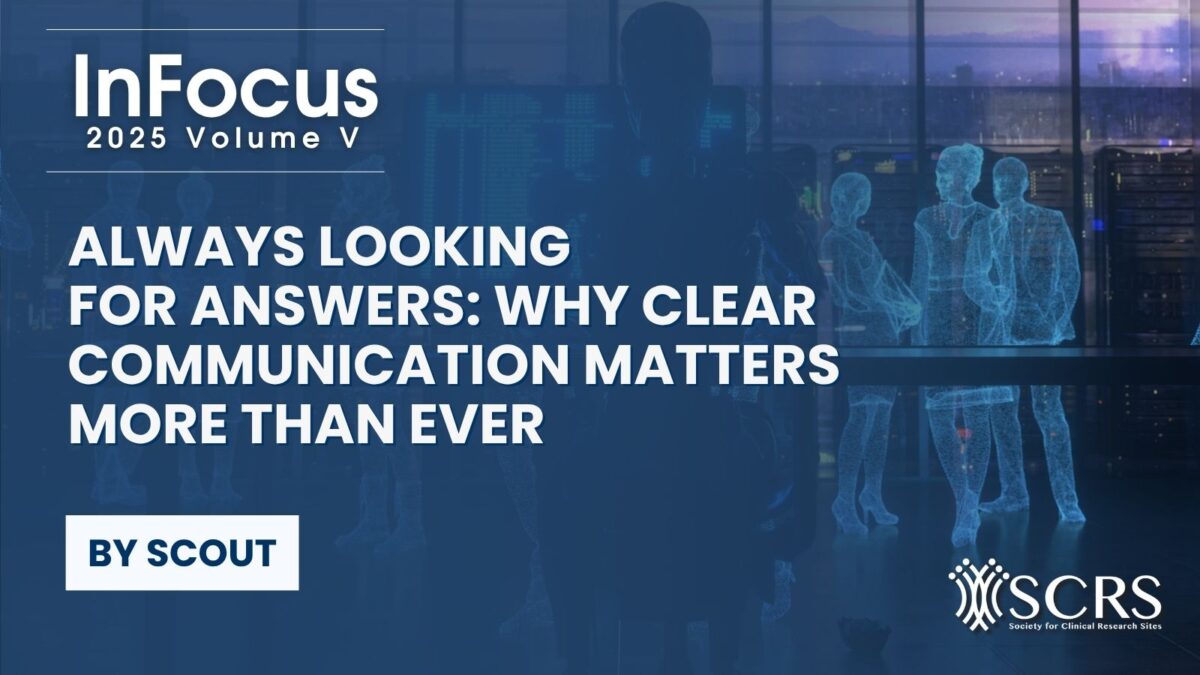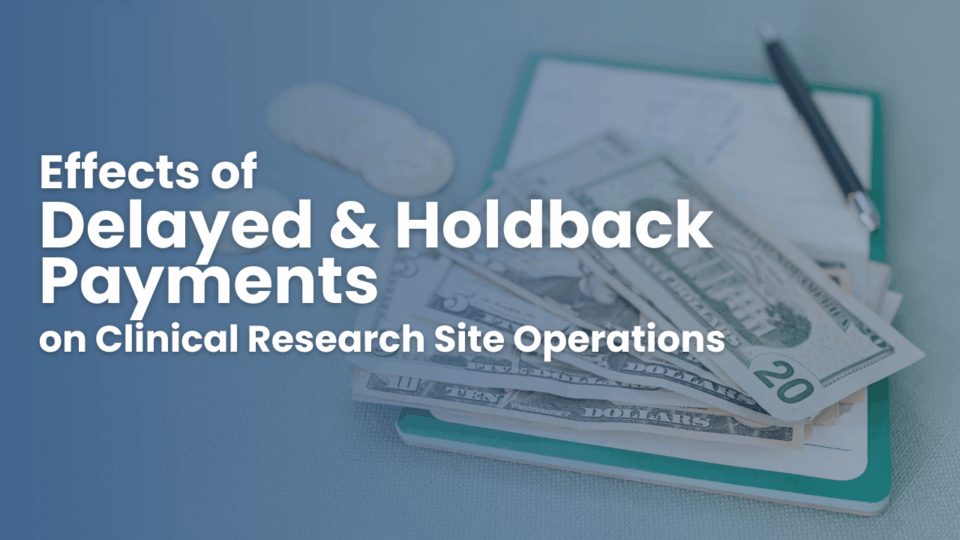Always Looking for Answers: Why Clear Communication Matters More Than Ever

Other than trial participants, what are sites looking for most often?
Answers.
Site staff are often forced to juggle many studies at one time, all at different trial stages, often with several sponsors, many different contacts for each study. They’re always looking for answers.
These can be as basic as:
- Who do I call for a payment status update?
- What’s the correct procedure for a protocol deviation?
- Which version of the contact list is current?
- When should I expect funds to arrive?
The questions pile up quickly, and too often there isn’t a clear, consistent source of truth.
Why Answers Are Still Hard to Find
As research has evolved throughout the decades one would think that access to answers would be easier with technology and access to data, and that may be true to some extent. However, with the complexity of protocols ever increasing and more stringent regulations in place, answers to day-to-day questions and trial-related support remain fleeting.
The cost is real. Staff lose valuable time chasing information, patients lose confidence when coordinators can’t give them clarity, and study timelines slip when gaps go unresolved.
Communication of the details is so critical for site staff throughout the lifecycle of a study and can be very frustrating when direction is not clear or simply isn’t available.
Finding Better Ways Forward
Research has demonstrated that in-person meeting attendees report being 85% more engaged than in virtual ones or individual review of material. Bringing a study team together to hear all the study details at the same time, from the same people, and interact directly has proven to be incredibly valuable to the entire execution of the trial. It helps build relationships, foster communication channels, and instill confidence in site staff to execute the study accordingly.
But one-time meetings aren’t enough. Sites need clear, consistent updates and a reliable point of contact throughout the study. Technology can support this through portals, trackers, and dashboards, but only when it’s paired with service that ensures questions don’t fall into a black hole.
Equipping site staff with answers to study questions helps coordinators feel comfortable and confident. It helps them ease participant concerns when they want answers, too.
Clear Answers, Stronger Trials
If trials are going to thrive, the industry has to do more than design protocols. It must give sites the tools and information they need to carry them out. That means treating communication as a core requirement and cutting processes that trap sites in the role of go-between.
The impact is straightforward. When sites get timely answers, patients feel reassured. When patients feel reassured, they stay in studies. And sponsors benefit from stronger retention and more reliable data.
Trials don’t falter because sites lack commitment. They falter when protocols become more complex, but the guidance doesn’t keep pace. We know complexity will continue to grow. The industry has to step up with answers that match it.
Contributor
Courtney Dodge – VP, Clinical Operations at Scout.
Click here to connect with Courtney on LinkedIn.



